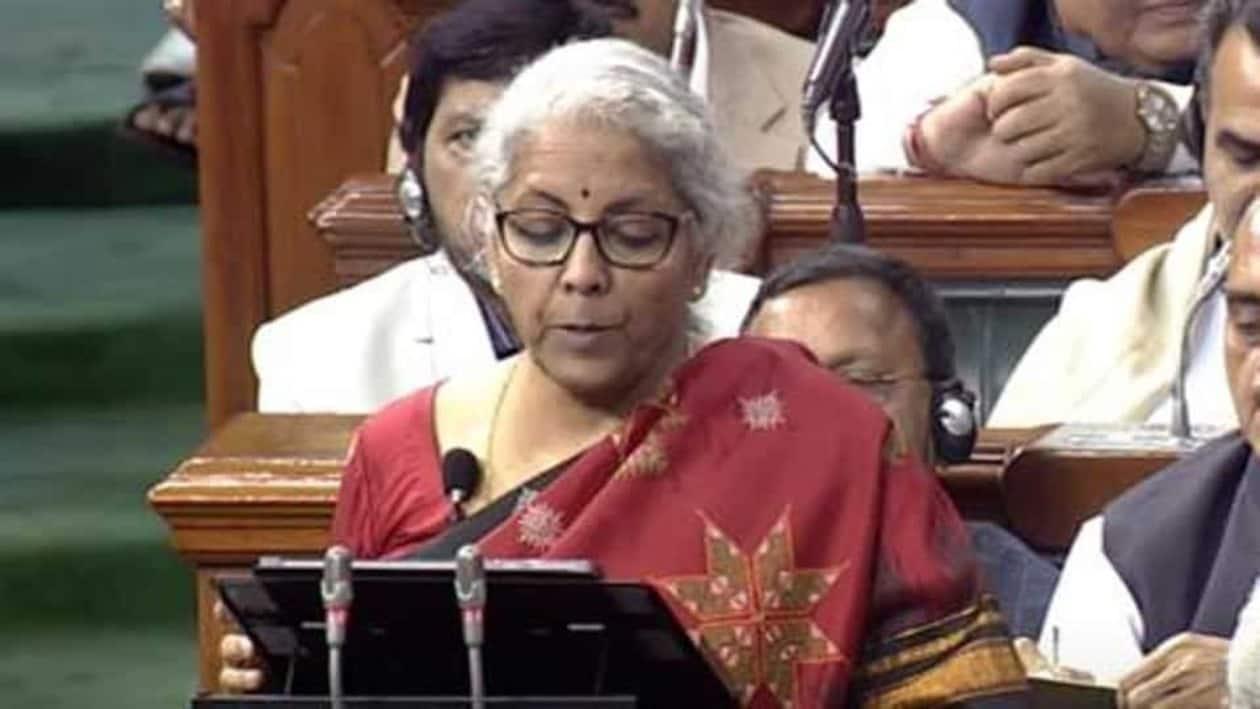The 2023-24 Union Budget aims at boosting the country's growth by promoting digitization and creating job opportunities for the youth. The budget aims to simplify taxes and focuses on building a strong economy.
It covers all aspects of the nation's development, including infrastructure, inclusive growth, empowering the youth, promoting green growth, strengthening the financial sector, and reaching every corner of the country. This budget is a visionary plan that encompasses the idea of "Amrit Kaal" for a holistic development of the nation.
The policy reforms in the budget are expected to increase the disposable income of working individuals, leading to higher savings, spending, and investments. This will drive domestic consumption and support the country's economic growth.
Under the new tax regime, the Finance Minister has announced that individuals earning up to 5 lakh will be exempt from paying income tax and the tax rebate limit has been increased to 7 lakh, meaning individuals with income up to 7 lakh won't pay any tax.
The personal income tax regime which was announced in 2020, has also been revised in this year’s Budget. Instead of the five tax slabs in the old regime, the new personal tax regime has proposed six slabs, with an increased tax exemption limit of up to 3 lakh from the present 2.5 lakh.
The revision of income tax brackets is a significant step towards transforming India into a consumer-driven economy. It results in more disposable income for individuals, granting them greater freedom and decision-making power over their spending and investments.
The new tax system eliminates exemptions on savings, which poses an opportunity for the insurance sector. This would require the industry to revamp its offerings, by creating personalised and user-friendly products that meet consumer needs and expectations, and enhance the customer experience.
The recent economic survey shows that insurance penetration in India has risen from 2.7% to 4.2% in 2022. In 2021, life insurance penetration was at 3.2%. This growth rate is higher than the global average. In FY22, life insurance premiums increased by a year-on-year growth rate of 10.2%, with new businesses accounting for 45.5% of total premiums received by life insurance companies.
The insurance sector in India is expanding due to various factors, including government programs and policies aimed at promoting financial inclusion. Key initiatives like the Government’s insurance program Pradhan Mantri Fasal Bima Yojana (PMFBY) has led to significant growth in crop insurance premiums, alongside policies like Ayushman Bharat (Pradhan Mantri Jan Arogya Yojana) which provide health coverage of up to ₹5 lakh per family every year in case of hospitalisation.
Additionally, the Insurance Regulatory and Development Authority of India (IRDAI) has implemented inventive measures to increase insurance penetration, such as video-based customer verification and standardised insurance products with incentives for low-risk behaviour.
The insurance market in India is experiencing strong growth, driven by government initiatives, favourable regulations, product innovations, and robust distribution channels. India is projected to become one of the largest insurance markets in the next 10 years, surpassing developed countries including Germany, Canada, Italy, and South Korea. The continued growth of the insurance sector in India is expected to positively impact the country's overall economic development.
The allocation of funds towards research in pharmaceuticals and health in the budget is a positive move. The budget also includes plans to establish 157 new nursing colleges, launch a program to support pharmaceutical research, and encourage joint public and private medical research through selected ICMR labs.
Moreover, the budget's focus on "Reaching the Last Mile" by connecting remote regions of India through telecom and the internet is a promising initiative. The robust roadmap to leverage 5G services and applications for a digital future will also increase the penetration of ICT in rural areas, further advancing the vision of Digital India.
The government's focus on increasing capital investments, supporting drinking water initiatives, and providing more rural housing opportunities is commendable. These measures will drive growth and have a significant socio-economic impact in rural India. The emphasis on cutting-edge technologies like artificial intelligence is also noteworthy. Given the fast pace of technological advancements, it is crucial for India to leverage technology to drive its growth in the coming years.
The capital expenditure of ₹10 trillion will boost economic recovery despite a weak global economy, and the increase in disposable income due to direct tax revisions will increase people’s purchasing power. The increase in funding for pharmaceuticals and healthcare is a positive step, and the allocation of ₹7,200 crore for Ayushman Bharat, the government's health insurance scheme, is 12% higher than last year's allocation of ₹6,412 crore.
This additional funding will improve the delivery of comprehensive health services, including preventive, promotive, curative, rehabilitative, and palliative care, throughout the country.
Overall, this budget is considered a positive and forward-looking one as it simplifies the tax system and provides more disposable income to the people. The Government’s emphasis on enhancing ease of doing business in India by simplifying the KYC process, establishing a Central Processing Centre, and introducing a Unified Filing Process is also greatly appreciated.
Ankur Nijhawan is the CEO at AXA France Vie India Reinsurance Branch
